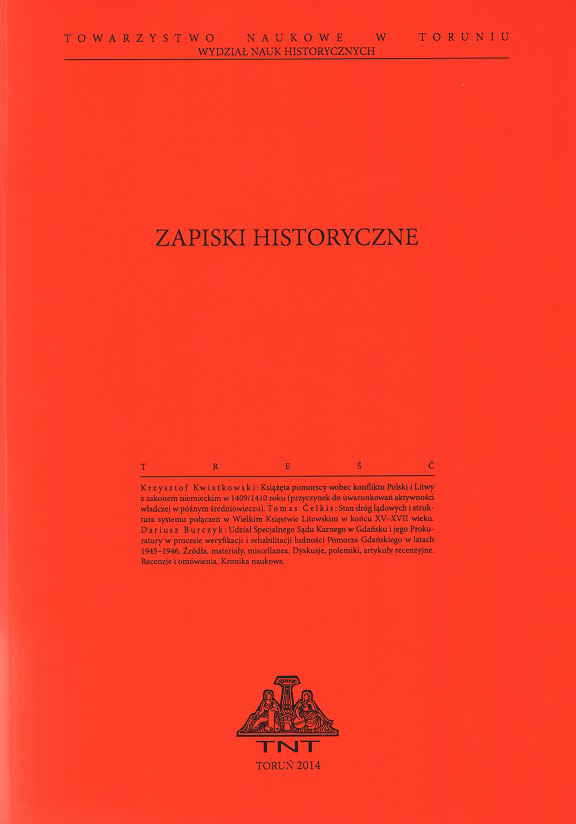Opisy Gdańska i Torunia w relacjach Petera Mundy’ego
Descriptions of Gdańsk and Toruń in the Accounts by Peter Mundy
Between an Englishman’s Sincere Curiosity and Early Modern Theory of Ekphrasis
Author(s): Bartosz AwianowiczSubject(s): Cultural history, History of ideas, Historical Linguistics, 16th Century, 17th Century, Theory of Literature
Published by: Towarzystwo Naukowe w Toruniu
Keywords: Peter Mundy;Gerard Bucoldianus;Gdańsk;Toruń;rhetoric;ekphrasis;travel literature;curiosity
Summary/Abstract: Peter Mundy (1596 – ca. 1667), one of the most representative English travellers of his period, visited Gdańsk (Danzig) and Toruń (Thorn) in 1640 and 1642 and described these cities in his Relations. The article includes deliberations concerning Mundy’s descriptions of the two most important cities in Royal Prussia in the context of early modern theory of ekphrasis and the eulogy of the city, represented especially by manuals of preliminary exercises in rhetoric (progymnasmata) and chapters from De inventione et amplificatione oratoria by Gerard Bucoldianus included in Reinhard Lorich’s Scholia attached to his edition of Aphthonius’ Progymnasmata, one of the most popular rhetoric books in the second half of 16th and in 17th centuries. The analysis of the structure and contents of Mundy’s “relations” leads to the conclusion that the English traveller was aware of the early modern theory of description and eulogy of cities but, at the same time, his curiosity made him free to leave the theoretical rules aside and focus himself on interesting technical constructions (“The great Organs in the Pfarrekerke” in Gdańsk or the Toruń bridge) or customs of burghers (“execution of Justice” and “Recreations” in Gdańsk and “A greatt faire” in Toruń).
Journal: Zapiski Historyczne
- Issue Year: 84/2019
- Issue No: 1
- Page Range: 123-133
- Page Count: 11
- Language: Polish

